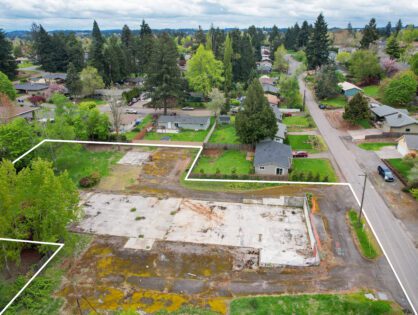
"IF I PRICE IT HIGH, BUYERS WILL STILL COME"
Sellers often think they can price a property as high as they want and reduce it later if needed. Unfortunately, when the price is too high, buyers who are looking in that price range probably can afford something nicer, newer or bigger. This strategy eliminates the very buyers for whom the home would be an ideal fit. The price point can also send a signal to potential buyers and agents as to the kind of seller you are — realistic or off-base, flexible or difficult. Savvy agents are astute at reading between the dollar signs and can often decipher a seller's situation based on how the home is priced.
"OPEN HOUSES BRING WILLING AND ABLE BUYERS"
Before the proliferation of today's high-tech research tools, open houses were heavily relied upon to generate potential buyers. Now, and especially in our post-pandemic world, open houses tend to attract curious neighbors and "looky lous" more than qualified buyers. If a potential buyer does attend, they often browse in "stealth mode, " and then arrange for a private showing with their agent. With this in mind, holding an open house weekend after weekend can cause people to lose interest, and start to speculate why the home is not selling. Worse, they can assume that the seller is desperate and shift their focus to more recent market listings.
"I SHOULD BE ABLE TO SELL MY HOUSE 'AS-IS'"
Many sellers balk when a buyer sends them a repair request after an inspection. They might say that their home isn’t new, and if a buyer wants a new space, they should go buy one. It can be difficult for sellers to understand that if they won’t work with a buyer on repairs, the buyer may terminate during the inspection contingency period. A home coming back on the market after an inspection carries a stigma, as it tends to prick suspicions as to what the report contained.
Unless the seller’s attitude shifts, the same thing will most likely happen again with the next buyer's inspection. The seller must then make a choice: address the repairs in question, substantially reduce the price or give the buyer a closing cost credit in lieu of repairs. Certain things may have to be addressed before closing, such as an older roof, plumbing or electrical issues. These can pose health or safety concerns as well as impact the buyer’s ability to obtain insurance.
Many sellers think that they can give an allowance toward the cost of replacements or repairs that might be flagged in the inspection. Although the idea sounds easy enough, it isn't practical. For example, a seller can’t legally give a buyer a flooring allowance at closing as a part of the official closing process. Any concession granted from a seller to a buyer is accomplished by either reducing the purchase price accordingly or paying a certain amount toward a buyer’s closing costs. If a buyer is getting a loan, a lender won’t allow this to be handled any other way. This is why it is almost always advisable for the seller to simply replace the carpet or upgrade the appliances before putting the home on the market.
"ALL IMPROVEMENTS INCREASE EQUITY"
Although it might help a home’s appeal and overall marketability, a custom kitchen with taste-specific finishes will not necessarily command a premium with buyers. The media room complete with projector and surround sound may not be something every buyer has to have, or even wants. The reality is, the market will never pay dollar-for-dollar for the improvements you’ve made, and some choices might be too taste-specific to motivate a buyer to pay more. Fire pits, pools or garage cabinetry don’t guarantee a buyer is going to pay more than the price of recently sold homes in the same market. Often, what a seller feels contributes to the value of their home may be something that a buyer shrugs their shoulders at. Everyone has different priorities.
"ANYONE WHO SEES MY HOME WILL WANT TO BUY IT"
We wish. If only! Some buyers can articulate exactly what they want, but many let their experience searching for properties clarify and crystalize their priorities. For example, a buyer who is exploring a neighborhood for the first time will spend longer in their home search process than one familiar with the area. It would be ideal if every buyer was ready, willing and able to buy the day of the showing, but in reality, it’s usually a process of elimination. The good news for sellers is that, given the current COVID-19 climate, buyers looking at listings are likely more serious now compared to pre- pandemic times. In other words, given what’s involved with showing properties today — safety precautions, travel restrictions, general hesitation and uncertainty — buyers are more determined and motivated to make sure their search is successful and succinct.


